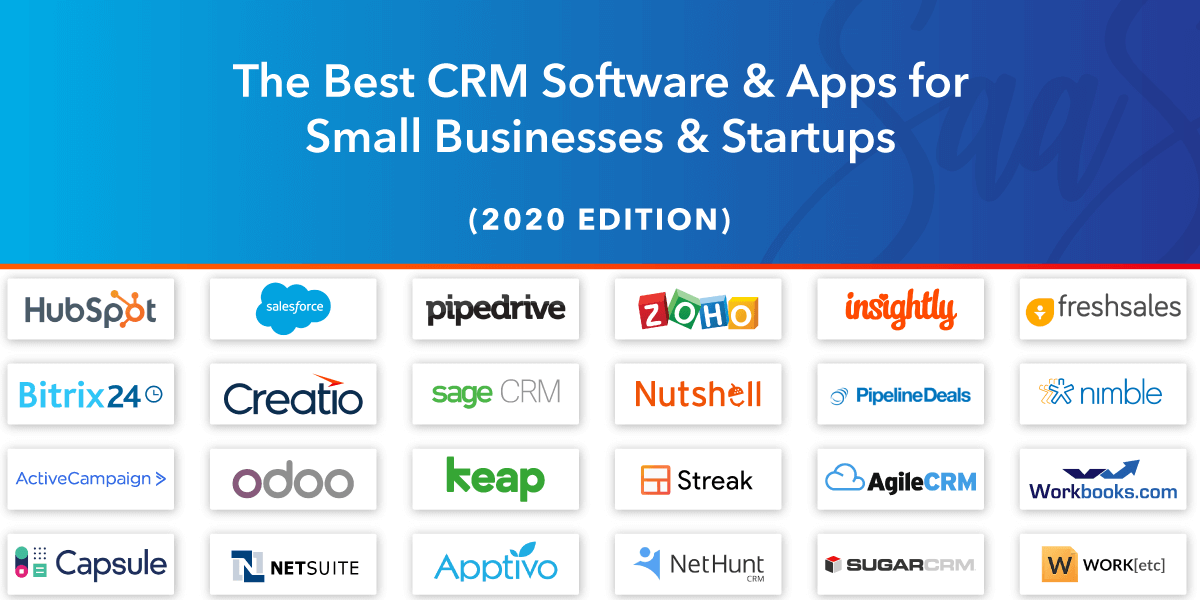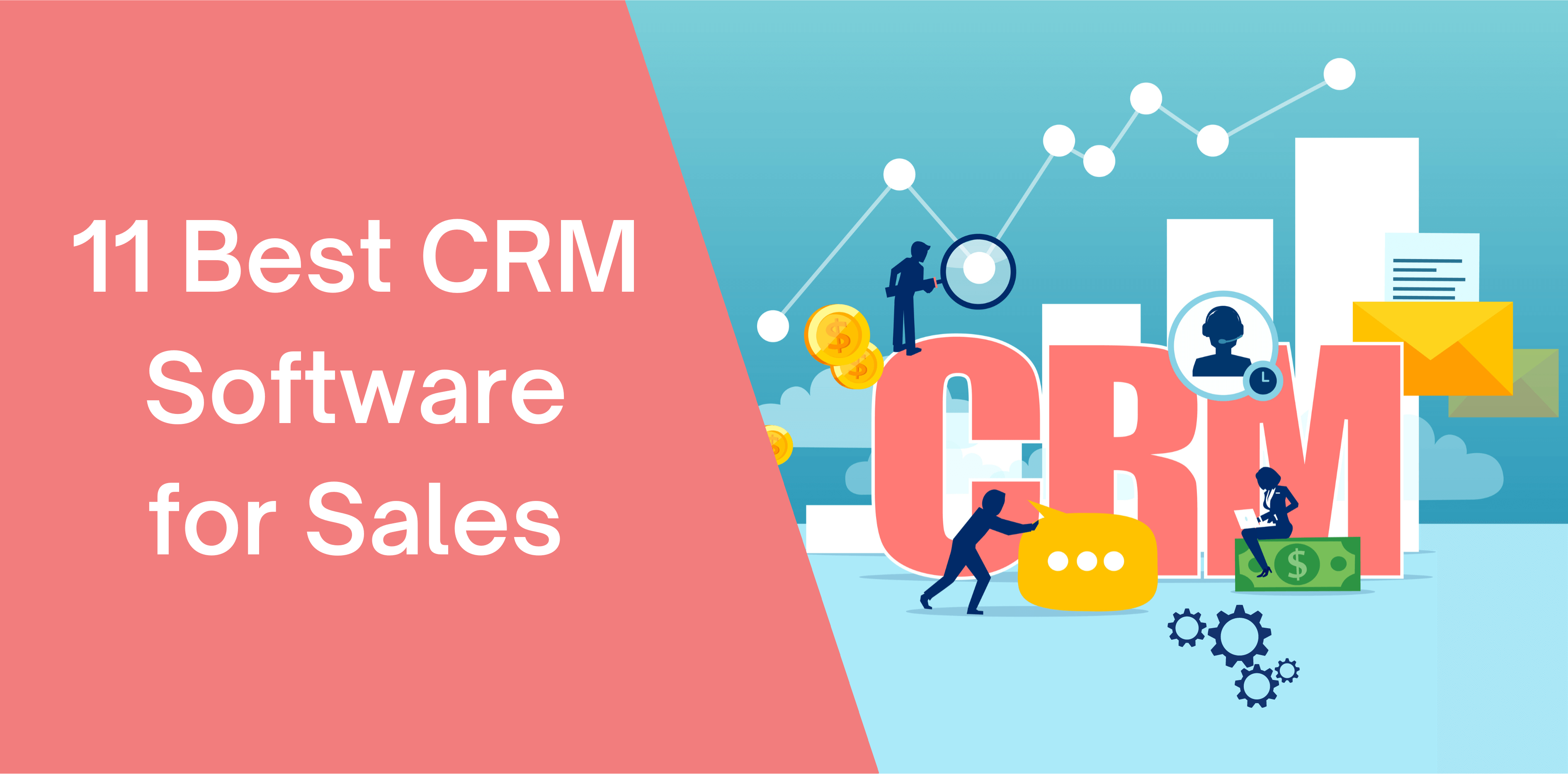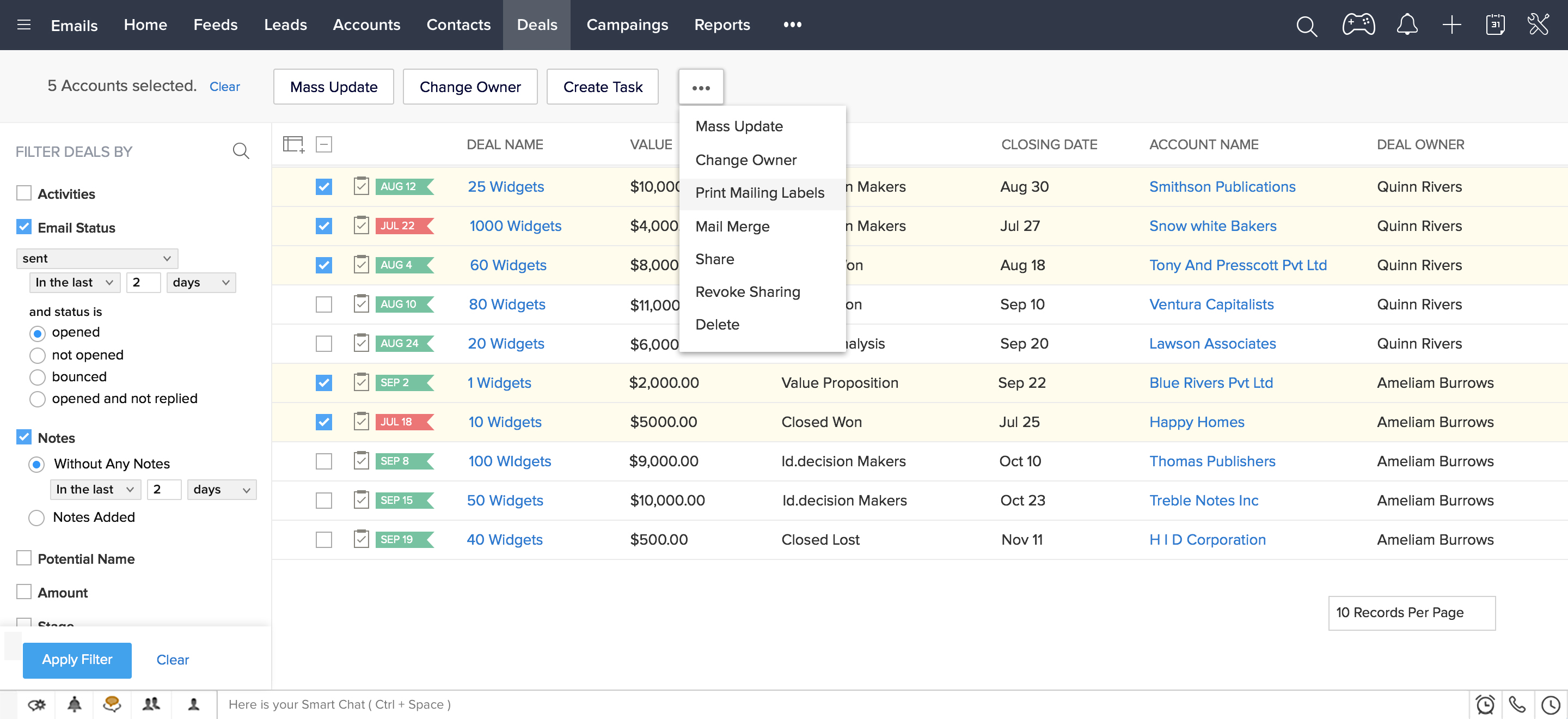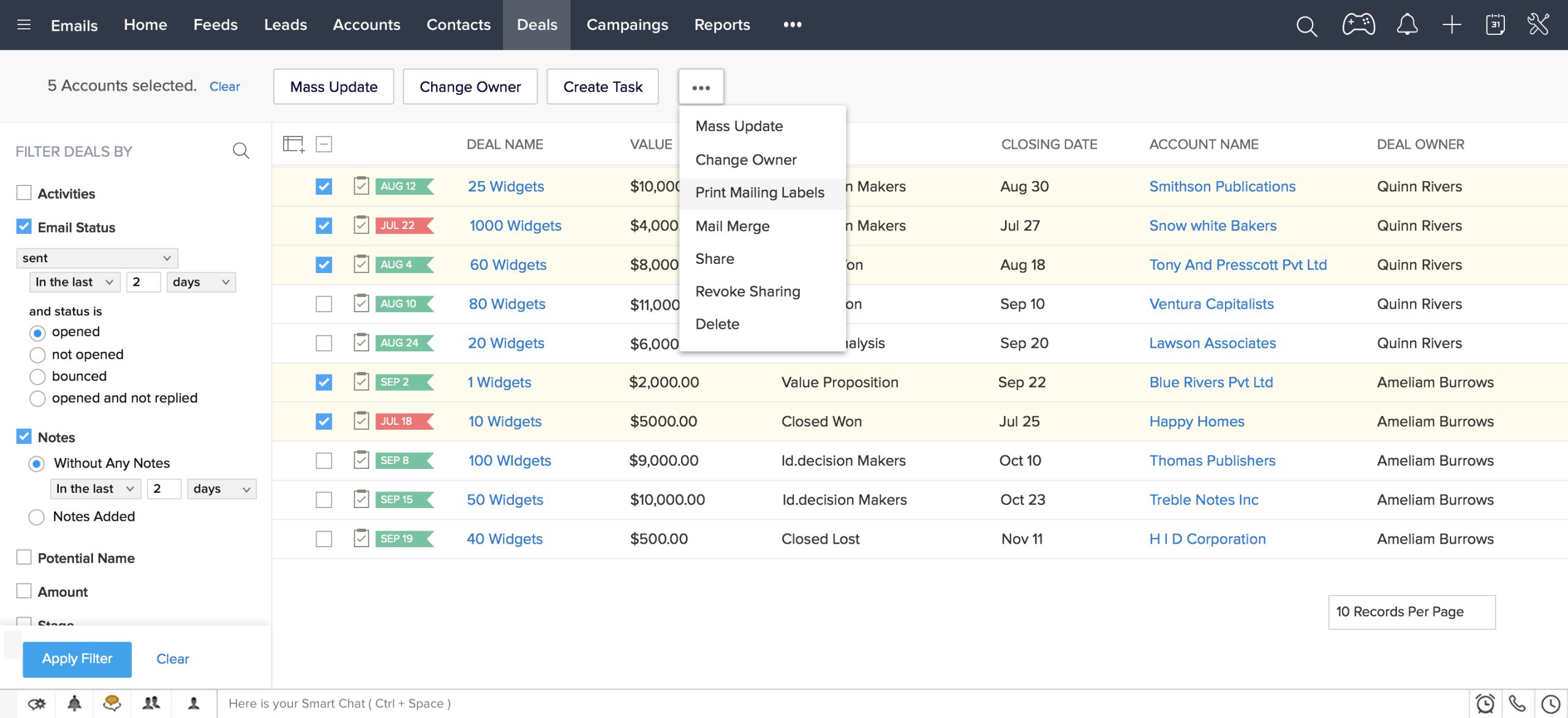crm best software opens the door to smarter ways of managing and nurturing customer relationships, helping businesses of all sizes streamline every touchpoint. In an era where every interaction matters, businesses are turning to powerful CRM tools to organize data, automate repetitive tasks, and personalize communication for better outcomes.
Choosing the right CRM software is crucial for companies aiming to improve efficiency, boost sales, and strengthen their customer connections. From intuitive dashboards and automation features to in-depth analytics and seamless app integration, the best CRM solutions offer a toolkit designed to drive growth and deliver exceptional customer experiences across industries.
Introduction to CRM Software
Customer Relationship Management (CRM) software is a digital tool designed to help businesses manage and nurture customer relationships efficiently. At its core, CRM centralizes all customer data, interactions, sales, and support activities into one accessible platform, improving both the customer experience and internal workflows.
CRM tools serve as the backbone for sales, marketing, and customer service teams by automating routine tasks, streamlining communication, and providing valuable insights into customer behavior. By leveraging CRM, companies can foster stronger relationships, anticipate customer needs, and ultimately drive revenue growth.
Choosing the right CRM solution is crucial, as every business has unique requirements based on its size, industry, and operational processes. Whether a startup or a large enterprise, adopting a well-suited CRM can transform how an organization engages with its customers, making the selection process a strategic priority.
Key Features of the Best CRM Software
Modern CRM software offers a variety of features designed to optimize business processes and elevate customer engagement. Understanding the essential features is key to selecting a platform that aligns with organizational goals and workflows.
Automation, data analytics, and seamless integrations are some of the standout functionalities that distinguish leading CRM solutions. These features not only reduce manual effort but also empower teams to make data-driven decisions and scale more efficiently.
- Contact and Lead Management: Centralizes customer data for easy tracking and segmentation.
- Workflow Automation: Automates routine processes such as follow-ups, reminders, and email campaigns.
- Analytics and Reporting: Delivers insights into sales performance, customer behavior, and campaign effectiveness.
- Integration Capabilities: Connects with email, calendar, marketing, and third-party applications.
- Mobile Accessibility: Enables access to CRM data from any device, supporting remote work and field teams.
- Customization: Allows tailoring of fields, dashboards, and workflows to fit specific business needs.
- Pipeline and Opportunity Management: Visualizes and manages sales cycles from lead to close.
- Customer Support Tools: Provides ticketing, knowledge base, and communication options for support teams.
| Feature | Description | Business Impact | Example Platforms |
|---|---|---|---|
| Automation | Automates repetitive tasks like follow-ups and data entry. | Increases productivity, reduces errors, and ensures consistency. | HubSpot, Salesforce |
| Analytics & Reporting | Generates detailed reports and visualizes trends. | Enables data-driven decisions and reveals growth opportunities. | Zoho CRM, Microsoft Dynamics 365 |
| Integration | Connects with other software (email, marketing, ERP). | Streamlines workflows and eliminates data silos. | Pipedrive, Freshsales |
| Mobile Access | Offers mobile apps for on-the-go CRM usage. | Empowers remote teams and improves responsiveness. | Salesforce, Insightly |
Types of CRM Software Solutions
CRM platforms are typically categorized by the business functions they support and the deployment models they offer. Understanding the distinctions between different CRM types helps organizations select the best fit for their unique challenges.
There are three primary categories of CRM solutions, each addressing specific organizational needs:
- Operational CRM: Focuses on automating sales, marketing, and service processes.
- Analytical CRM: Emphasizes data analysis to gain insights into customer behavior and trends.
- Collaborative CRM: Enhances information sharing across departments for a unified customer experience.
Deployment options, such as cloud-based and on-premises CRM, also play a significant role in decision-making. The following table highlights the pros, cons, and typical use cases for each solution type:
| Type | Pros | Cons | Use Cases |
|---|---|---|---|
| Cloud-Based CRM | Accessible anywhere, scalable, minimal IT maintenance | Requires reliable internet, recurring subscription costs | Startups, mobile sales teams, rapidly growing businesses |
| On-Premises CRM | Full data control, customizable, no ongoing subscription | High upfront costs, complex setup, IT resource needed | Large enterprises, regulated industries, companies with strict data security |
The choice of CRM type also often correlates with industry requirements. For example, operational CRMs serve retail and hospitality where quick response and streamlined sales are priorities, analytical CRMs are favored in financial services for deep data analysis, and collaborative CRMs are popular in healthcare or education sectors where multi-department coordination is essential.
Popular CRM Software Options
Several leading CRM platforms have established themselves as industry favorites by offering robust features, reliable support, and scalability to meet diverse business needs.
The CRM market is filled with solutions ranging from comprehensive enterprise suites to lightweight, user-friendly tools for small teams. The following table compares some of the most widely adopted CRM platforms, outlining their distinguishing features, pricing models, and suitability by business size.
| Software Name | Key Features | Pricing Model | Ideal Business Size |
|---|---|---|---|
| Salesforce | Advanced automation, extensive integrations, AI-powered insights | Subscription-based, tiered plans | Medium to large enterprises |
| HubSpot CRM | User-friendly interface, marketing automation, free starter plan | Freemium with paid upgrades | Startups, SMEs |
| Zoho CRM | Customization, multichannel communication, analytics | Subscription, flexible tiers | Small to midsize businesses |
| Microsoft Dynamics 365 | Integration with Microsoft ecosystem, robust analytics, scalability | Subscription, enterprise-focused | Enterprises, corporations |
| Pipedrive | Visual sales pipelines, easy setup, email integration | Subscription-based | Small teams, sales-driven organizations |
Each CRM solution addresses varying business requirements. Salesforce shines with its customizability and AI-driven features for larger organizations. HubSpot is ideal for those seeking quick onboarding and integrated marketing tools. Zoho CRM provides cost-effective, scalable options, while Microsoft Dynamics 365 is suited for businesses deeply invested in the Microsoft ecosystem. Pipedrive, meanwhile, attracts small teams focused on managing sales pipelines efficiently.
Methods for Evaluating CRM Software

Selecting a CRM platform involves careful evaluation to ensure alignment with business objectives and user needs. Factors such as scalability, usability, and customer support can dramatically influence overall satisfaction and long-term success with the software.
A structured approach to CRM evaluation helps organizations make informed choices and avoid costly missteps. The following checklist Artikels key criteria to consider during the selection process:
- Scalability: Can the CRM grow with your business and handle increasing data volumes?
- Usability: Is the interface intuitive and easy for all team members to adopt?
- Integration: Does it connect seamlessly with your existing tools and systems?
- Customization: Are workflows, fields, and dashboards adaptable to your business processes?
- Mobile Support: Is the platform accessible on mobile devices for field teams?
- Data Security: Does it comply with data protection regulations relevant to your industry?
- Customer Support: Are robust training and support resources available?
- Reporting & Analytics: Does it provide actionable insights and comprehensive reporting?
- Cost: Are pricing plans transparent and within your budget?
Trialing CRM software is a best practice before full deployment. Most vendors offer free trials or demo accounts, which allow teams to assess usability, explore features, and verify integration with other tools. During this period, involve key stakeholders, test core workflows, and gather feedback to ensure the solution meets your organizational requirements.
Best Practices for Implementing a CRM Solution: Crm Best Software

Successful CRM implementation requires a well-defined plan and collaboration across multiple departments. From initial planning to user training and data migration, each step plays a vital role in ensuring a smooth transition and maximizing ROI.
A structured approach helps minimize disruption and drive user adoption. The following table breaks down the typical steps, descriptions, responsible teams, and recommended timeframes for CRM deployment:
| Implementation Step | Description | Responsible Team | Timeframe |
|---|---|---|---|
| Requirement Analysis | Define business needs, goals, and success metrics for the CRM project. | Project Manager, Department Heads | 1-2 weeks |
| Selecting a CRM Platform | Evaluate and choose the CRM solution that best fits requirements and budget. | IT, Management, End Users | 2-4 weeks |
| Data Migration | Transfer, clean, and validate existing customer data for CRM import. | IT, Data Analysts | 2-3 weeks |
| Customization & Integration | Configure the CRM to align with workflows and integrate with other systems. | CRM Admins, Developers | 2-4 weeks |
| User Training | Educate staff on CRM features, processes, and best practices to drive adoption. | HR, Trainers | 1-2 weeks |
| Go-Live & Monitoring | Launch the CRM and monitor performance, addressing issues promptly. | All Teams | Ongoing |
Data migration is critical—ensure accuracy and consistency by cleaning data before importing it. User training is equally essential to reduce resistance and foster widespread adoption. Clear communication and ongoing support help teams transition smoothly and maximize the CRM’s value.
Real-World Use Cases of CRM Software

Across industries, CRM software has helped organizations transform their approach to customer engagement, sales, and support. These solutions have enabled teams to track interactions, personalize outreach, and improve overall satisfaction with measurable results.
For example, a retail chain implemented a cloud-based CRM to centralize customer data from both online and in-store transactions. By analyzing purchase histories and preferences, the company delivered targeted promotions, resulting in higher customer retention rates and increased average order values.
In the B2B sector, a software company used CRM to automate lead nurturing and track sales pipeline activity. The sales team could prioritize high-potential leads, forecast revenue more accurately, and shorten the sales cycle.
In the nonprofit sector, organizations have leveraged CRM to streamline donor management, enabling personalized communications and efficient event planning.
- Improved customer retention rates by up to 25% through personalized engagement.
- Increased sales conversion rates by automating lead follow-ups and tracking.
- Enhanced cross-department collaboration, reducing response times for support tickets.
- More accurate forecasting and reporting, leading to better strategic decisions.
Future Trends in CRM Software
The CRM landscape is evolving rapidly, driven by emerging technologies and shifting business demands. Artificial intelligence (AI), machine learning, and advanced automation are at the forefront of this transformation, allowing businesses to anticipate customer needs and personalize interactions at scale.
Mobile accessibility is becoming increasingly important as remote work and field operations expand. CRM solutions now offer advanced mobile apps with offline capabilities, voice commands, and real-time notifications, empowering teams to stay connected and responsive regardless of location.
Seamless integration with other business tools—such as marketing automation platforms, ecommerce systems, and customer support software—is now standard. This interconnectedness enables a 360-degree view of the customer and streamlines workflows across the organization.
For example, AI-powered chatbots are already handling initial customer inquiries, while predictive analytics help sales teams identify upsell opportunities. In the near future, CRMs could automatically suggest the best outreach strategies based on historical data and customer sentiment analysis, further enhancing customer relationship strategies.
The adoption of these innovations is expected to redefine how organizations attract, retain, and engage customers, ensuring they remain competitive in an ever-changing marketplace.
Final Wrap-Up
Exploring crm best software reveals just how transformative the right platform can be for business success. By understanding the key features, evaluating different solutions, and following best practices, organizations can turn customer relationship management into a true competitive advantage, both now and as technology continues to evolve.
Question Bank
What is CRM software used for?
CRM software is used to manage customer information, track interactions, automate sales processes, and improve communication and collaboration within a business.
How does CRM software improve customer relationships?
CRM software centralizes customer data, enables personalized communication, automates follow-ups, and provides insights that help businesses better understand and meet customer needs.
Is CRM software suitable for small businesses?
Yes, many CRM platforms are scalable and have features tailored for small businesses, helping them organize contacts, track leads, and streamline daily operations.
Can CRM software integrate with other business tools?
Most modern CRM solutions offer integrations with email, marketing platforms, accounting software, and other business apps to ensure seamless workflow management.
How secure is customer data in CRM software?
Reputable CRM software providers implement strong security measures such as data encryption, user authentication, and regular backups to protect sensitive customer information.

